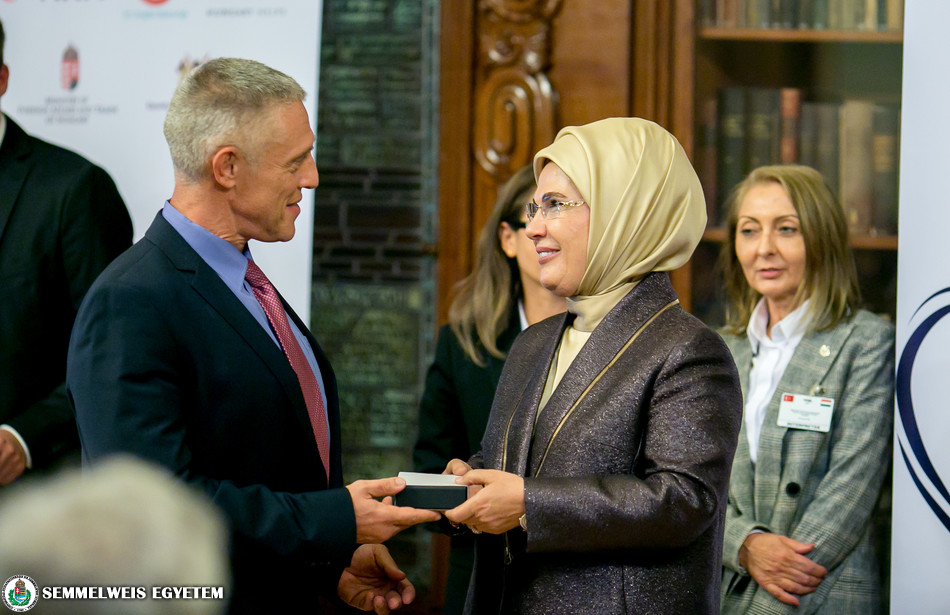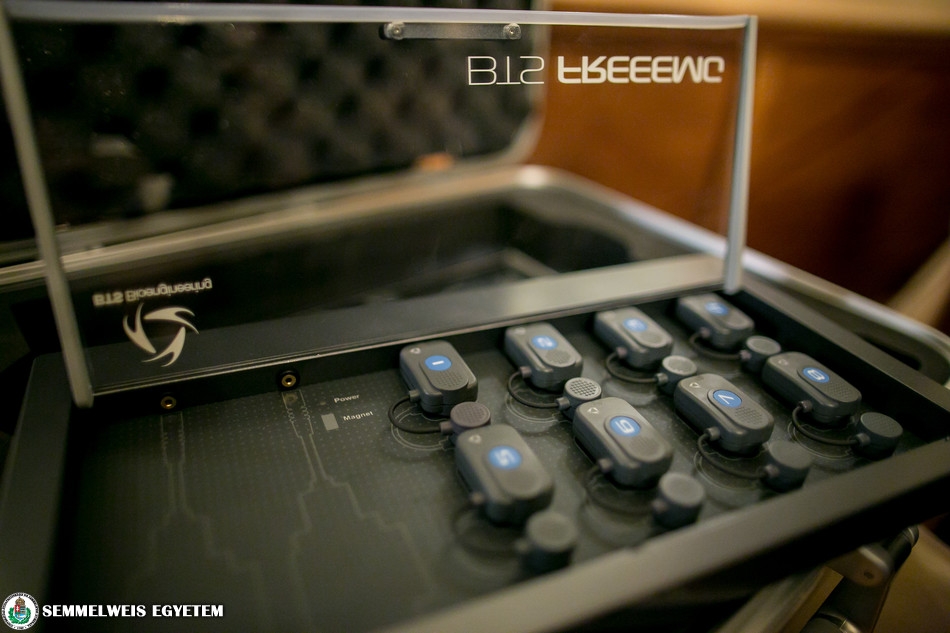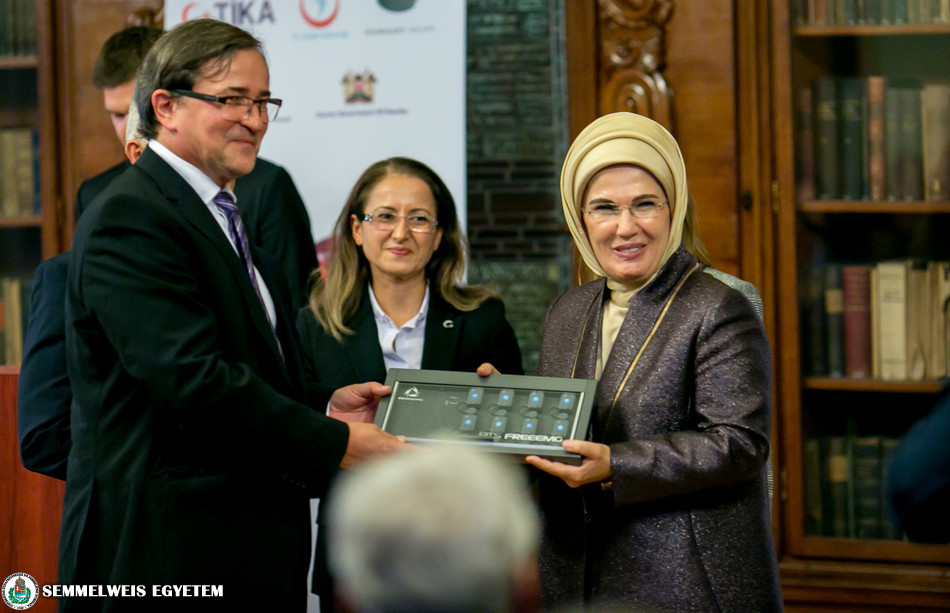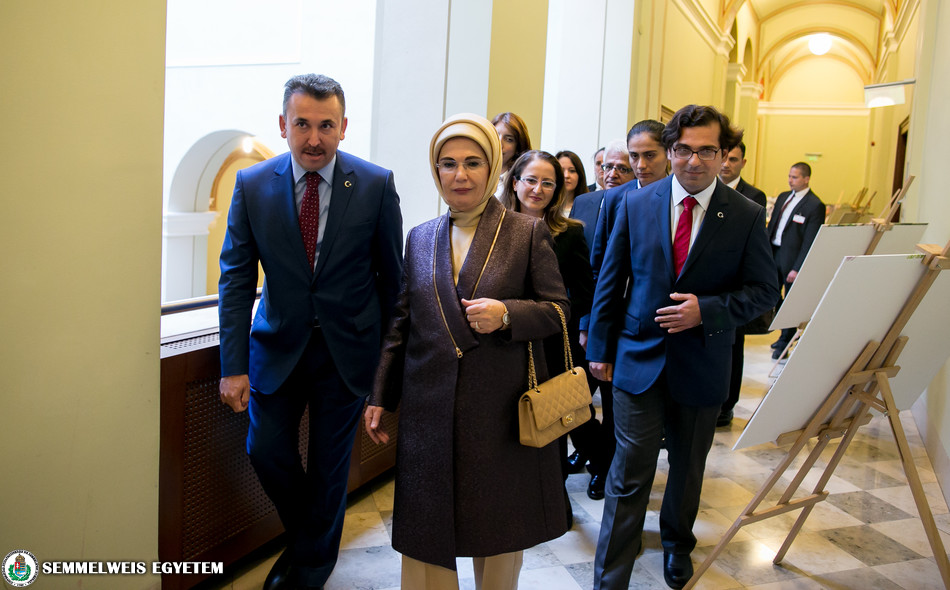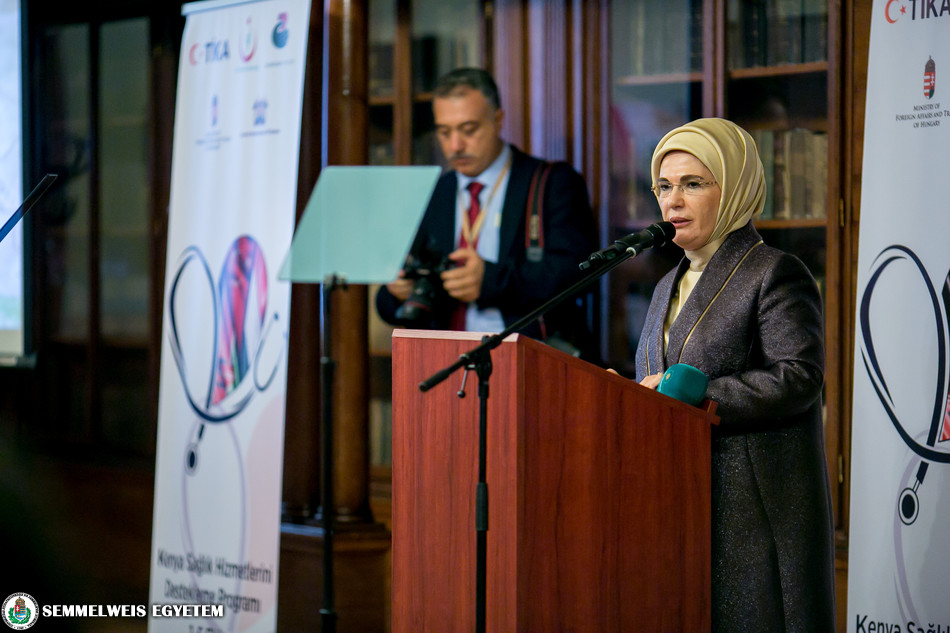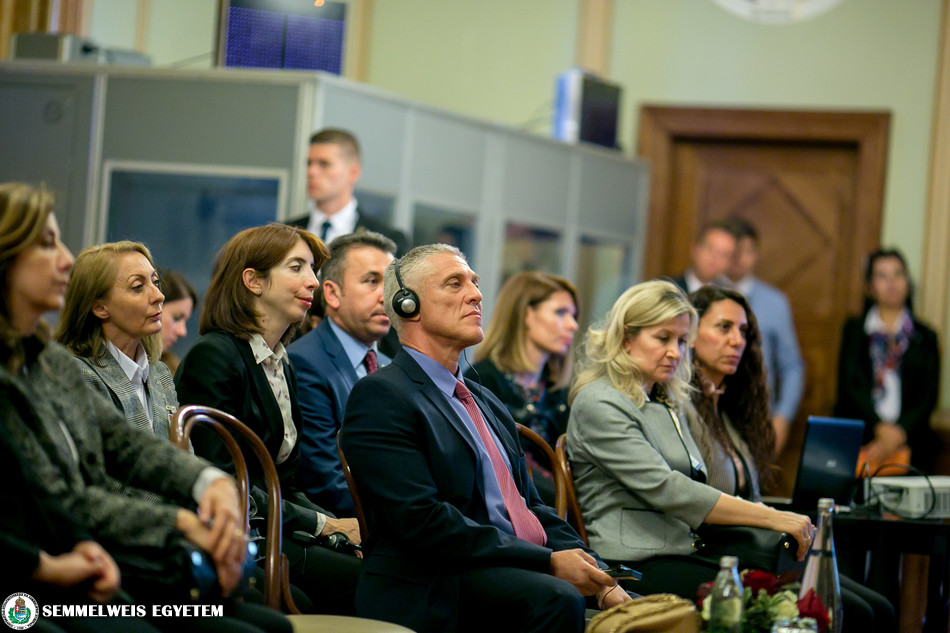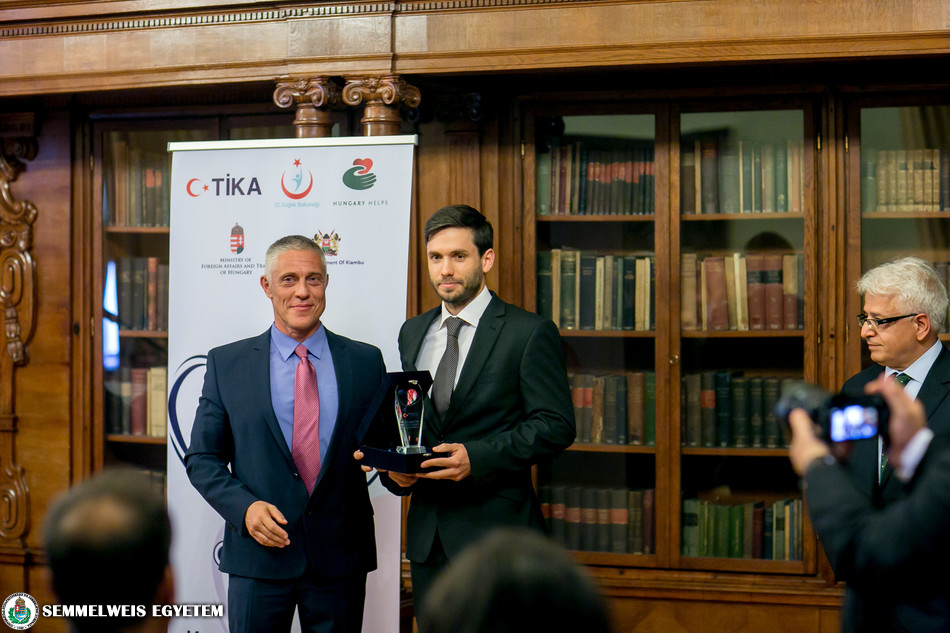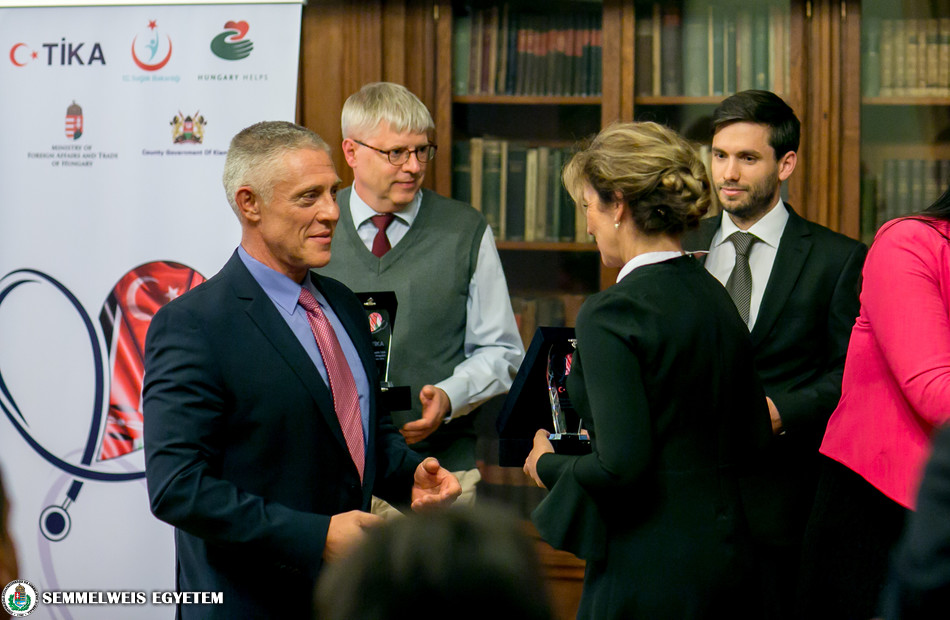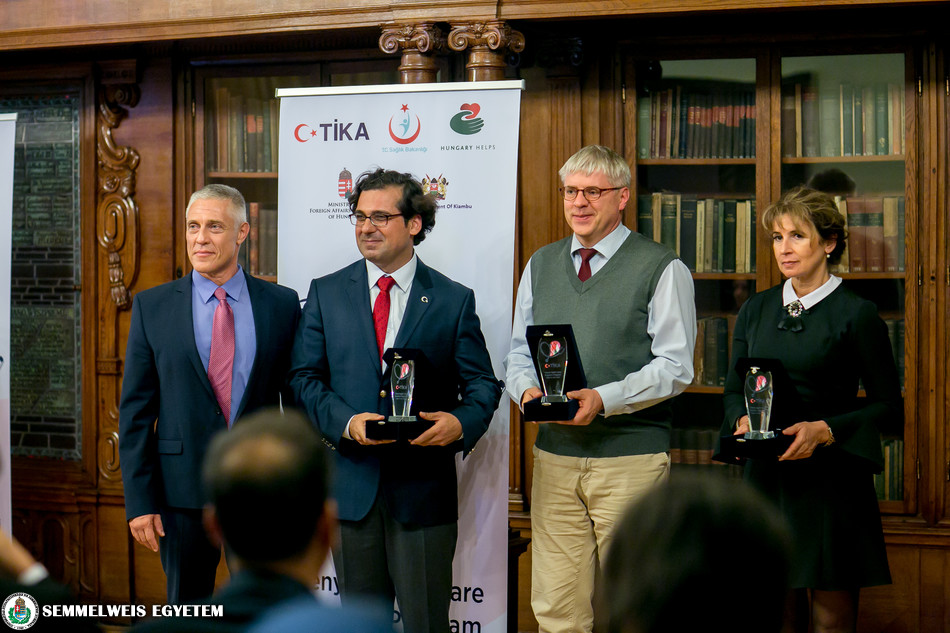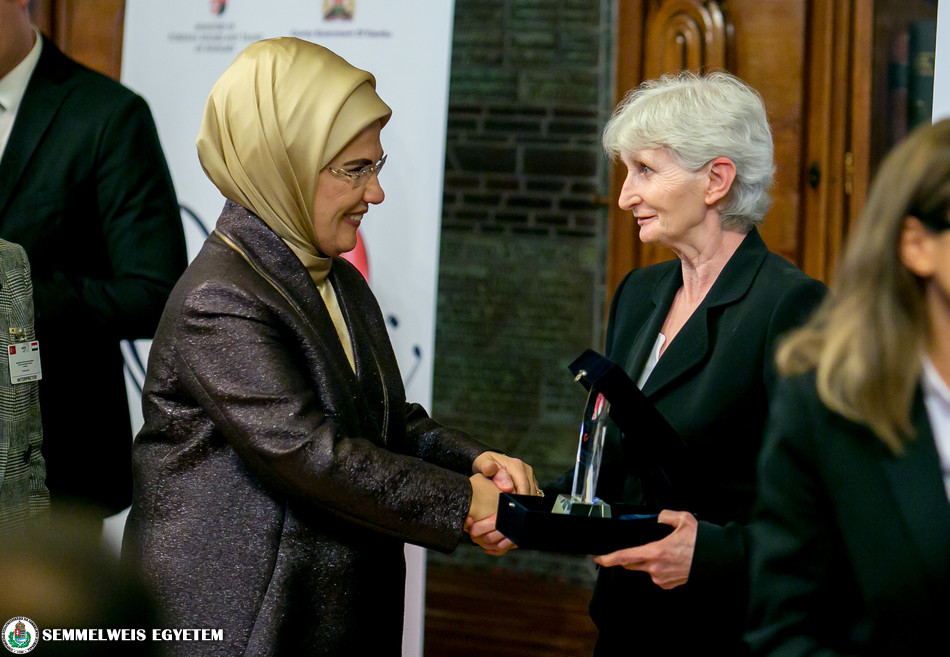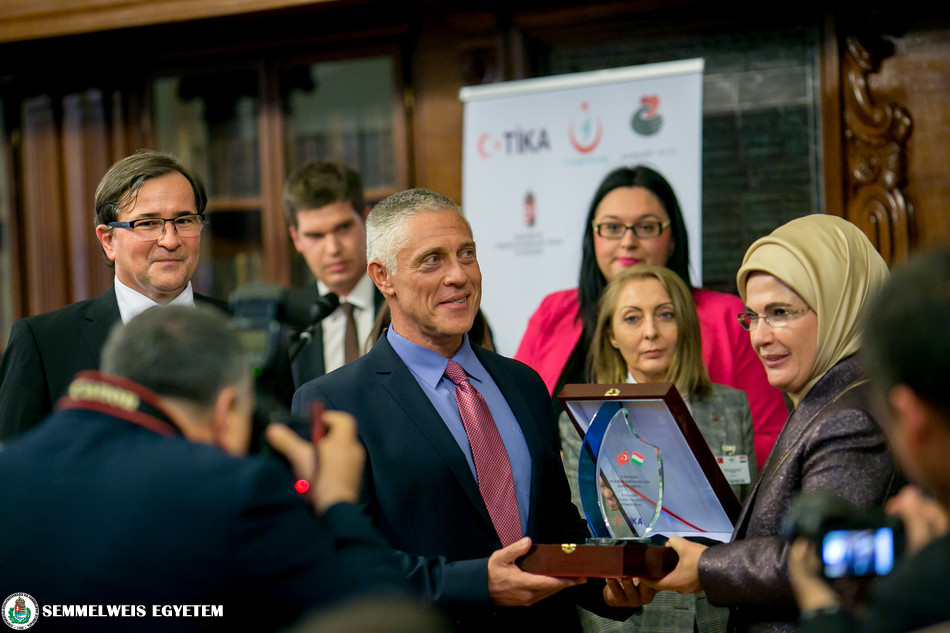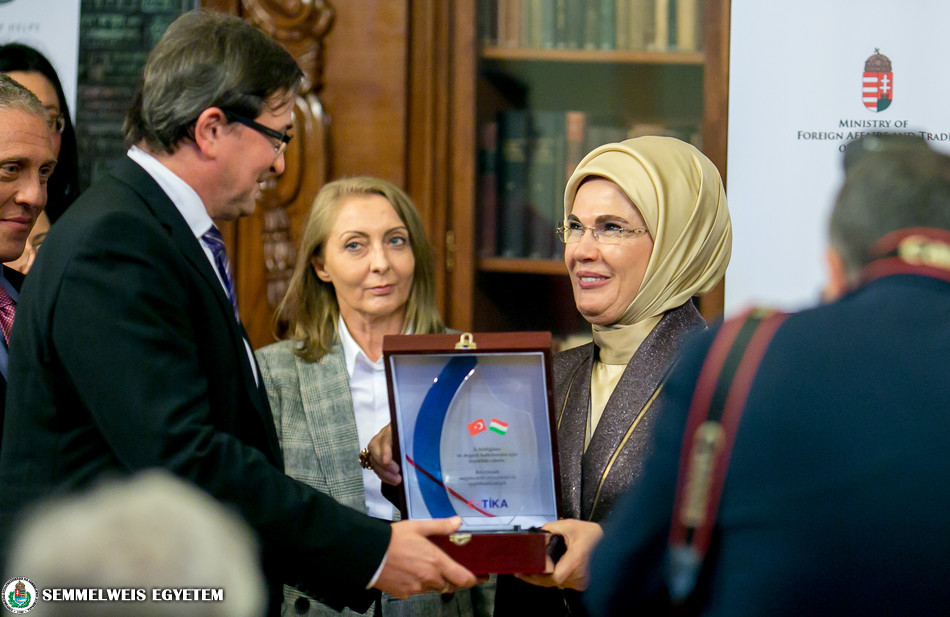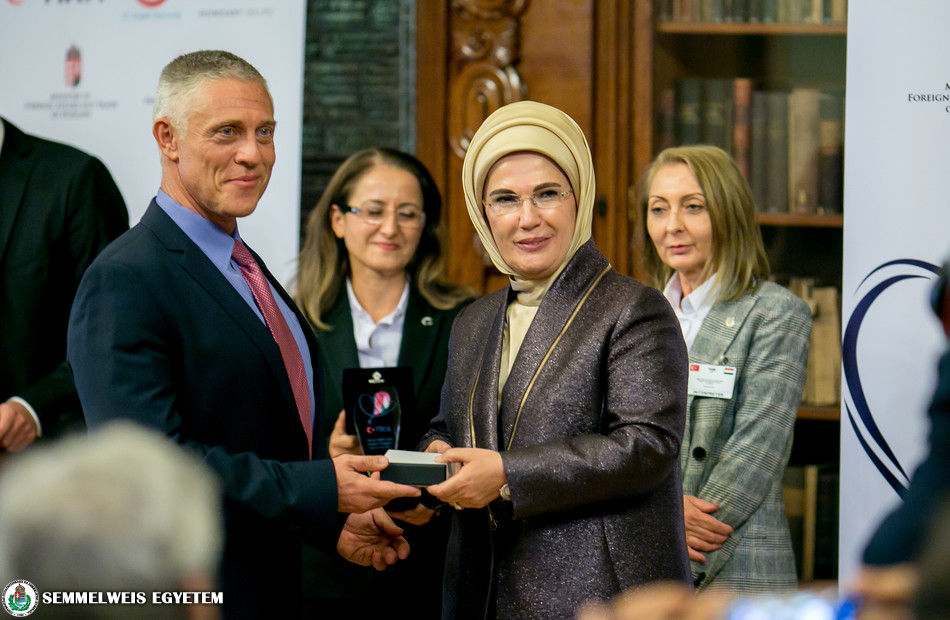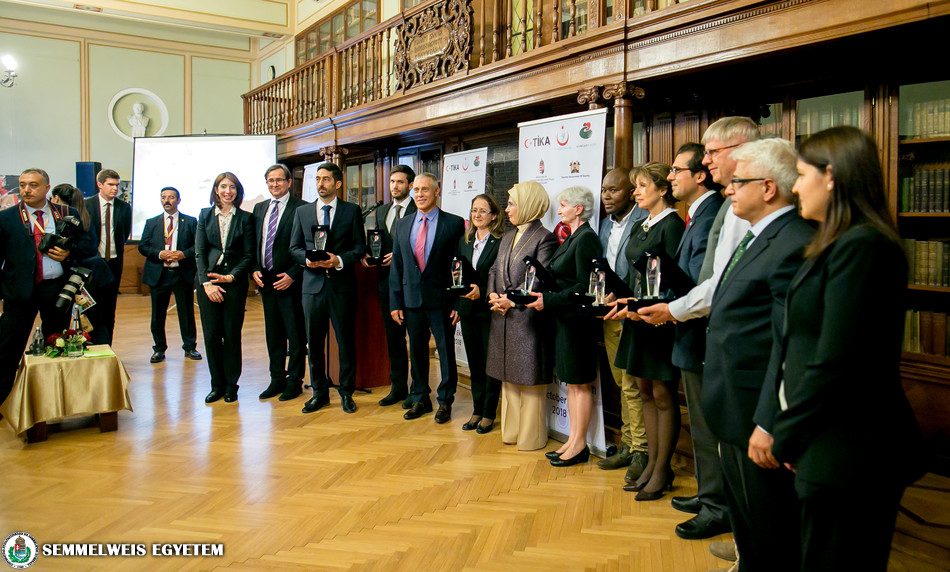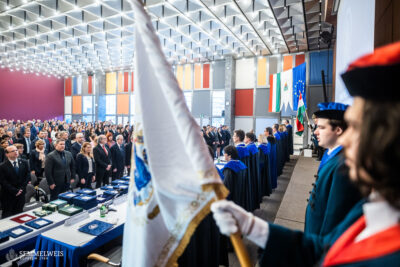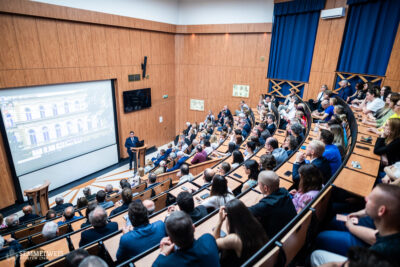A special wireless EMG device was donated to the Department of Orthopaedics by the Budapest Program Coordination Office of the Turkish Cooperation and Coordination Agency (TİKA). The tool used for gait analysis was received at the Semmelweis Salon by Dr. Ferenc Bánhidy, Vice-Rector for General Affairs, and Dr. György Szőke, head of the Department of Orthopaedics, with the participation of the wife of the President of Turkey, Emine Erdogan.
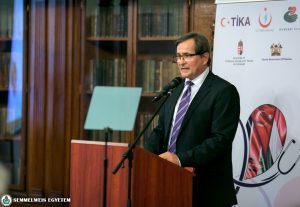 In his speech, Dr. György Szőke recalled that the Department of Orthopaedics is Hungary’s largest centre for children with musculoskeletal disorders. The gait analysis laboratory operating there is able to map and pattern movement, and thus assist surgeons to plan operations. The special muscle activity measurement device donated by TİKA is a wonderful addition to the current set of equipment in the laboratory and makes it possible to measure the activity of dysfunctional muscles. Thus, it will be easier to plan operations more precisely, and this modern tool helps to evaluate the effectiveness of interventions, that is, the improvement in muscle activity is visible, he added. With the help of the wireless EMG, a dynamic EMG recording can be made of ten muscles at the same time, meaning that the activity of the muscles examined by electrodes can be judged during walking. Dr. György Szőke said he was honoured to receive the donation in the presence and with the support of the wife of the President of Turkey, who is well-known for her active social involvement in assisting needy and sick children and their families.
In his speech, Dr. György Szőke recalled that the Department of Orthopaedics is Hungary’s largest centre for children with musculoskeletal disorders. The gait analysis laboratory operating there is able to map and pattern movement, and thus assist surgeons to plan operations. The special muscle activity measurement device donated by TİKA is a wonderful addition to the current set of equipment in the laboratory and makes it possible to measure the activity of dysfunctional muscles. Thus, it will be easier to plan operations more precisely, and this modern tool helps to evaluate the effectiveness of interventions, that is, the improvement in muscle activity is visible, he added. With the help of the wireless EMG, a dynamic EMG recording can be made of ten muscles at the same time, meaning that the activity of the muscles examined by electrodes can be judged during walking. Dr. György Szőke said he was honoured to receive the donation in the presence and with the support of the wife of the President of Turkey, who is well-known for her active social involvement in assisting needy and sick children and their families.
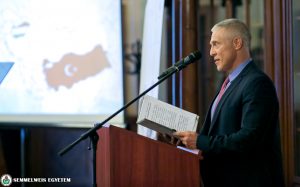 Dr. Ferenc Bánhidy, Vice-Rector for General Affairs, emphasized in his speech that the event organized at Semmelweis Salon and the donation of the medical instrument by TİKA, with the support of the Turkish State and Emine Erdogan, can be an important stage in the series of events that indicates the intentions of the Governments of Turkey and Hungary to strengthen the relationship between the two countries. He said that at the moment 30 Turkish students are studying at the university, and there are partnerships with nine Turkish universities. The vice-rector added that he is confident that the present meeting will provide a strong foundation for further successful cooperation. Dr. Ferenc Bánhidy spoke about the importance of further strengthening international relations in order to reach the university’s goal of becoming one of the world’s top 100 higher education institutions within the next ten years.
Dr. Ferenc Bánhidy, Vice-Rector for General Affairs, emphasized in his speech that the event organized at Semmelweis Salon and the donation of the medical instrument by TİKA, with the support of the Turkish State and Emine Erdogan, can be an important stage in the series of events that indicates the intentions of the Governments of Turkey and Hungary to strengthen the relationship between the two countries. He said that at the moment 30 Turkish students are studying at the university, and there are partnerships with nine Turkish universities. The vice-rector added that he is confident that the present meeting will provide a strong foundation for further successful cooperation. Dr. Ferenc Bánhidy spoke about the importance of further strengthening international relations in order to reach the university’s goal of becoming one of the world’s top 100 higher education institutions within the next ten years.
During the event, a short film was presented about the Kenyan healthcare programme implemented in Turkish-Hungarian cooperation, in which 81 physicians shared their experiences with locals in order to improve healthcare services in the African country. In the framework of the project, 4,500 patients were treated in various areas of Kenya, including surgical interventions and medical examinations, and training sessions were also organized.
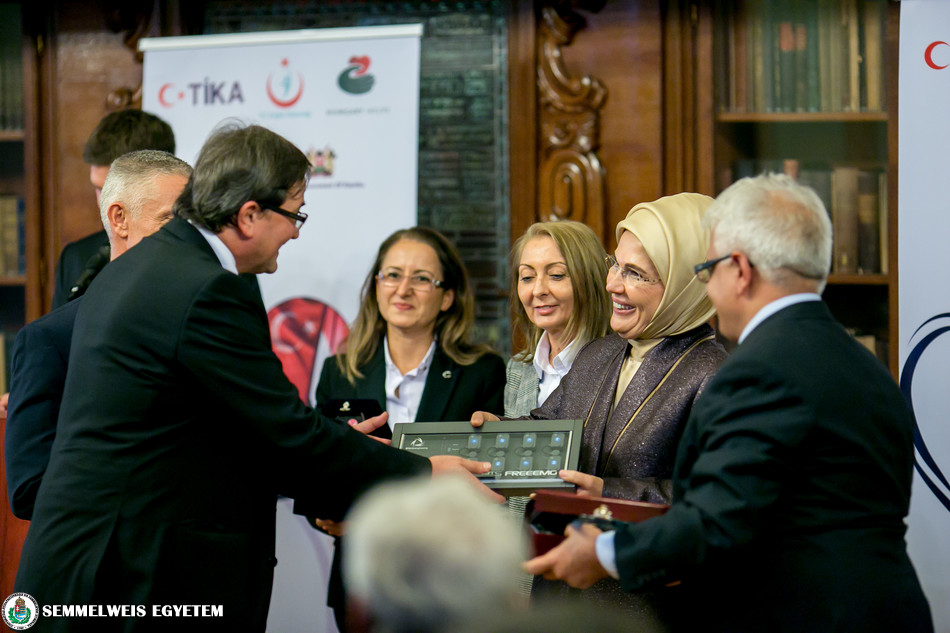 Emine Erdogan, wife of the President of Turkey, Recep Tayyip Erdogan, stressed that this programme showed how successful cooperation and multilateral collaboration in healthcare can be, thanks to which Hungarian and Turkish experience could be taken to Kenya. The president’s wife said she was honoured to be able to greet the programme’s participants in one of Hungary’s most renowned educational institutions. She spoke about the importance of families and said she paid tribute to Ignác Semmelweis on his 200th birth anniversary at the university named after him.
Emine Erdogan, wife of the President of Turkey, Recep Tayyip Erdogan, stressed that this programme showed how successful cooperation and multilateral collaboration in healthcare can be, thanks to which Hungarian and Turkish experience could be taken to Kenya. The president’s wife said she was honoured to be able to greet the programme’s participants in one of Hungary’s most renowned educational institutions. She spoke about the importance of families and said she paid tribute to Ignác Semmelweis on his 200th birth anniversary at the university named after him.
Subsequently, plaques were presented to doctors participating in the Kenyan healthcare programme. Dr. Ferenc Bánhidy and Dr. György Szőke also received a memorial plaque for their participation in the Turkish-Hungarian cooperation.
Pálma Dobozi
Photo: Attila Kovács, Semmelweis University
Translation: Diána Módos
